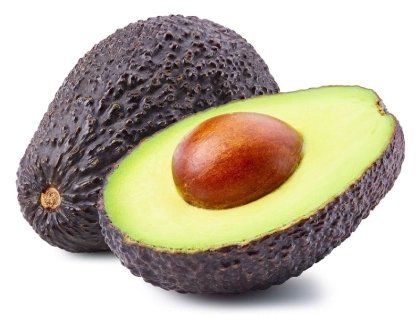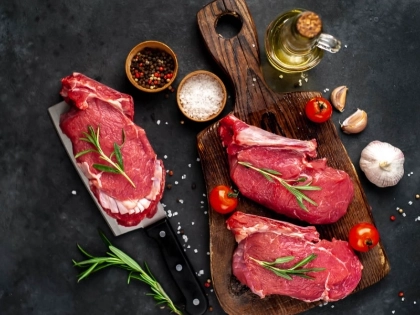Foods Best Suited For Heart Health
The two leading causes of death in the United States are stroke and coronary artery disease. Eating a heart-healthy diet can minimize the risk of both by lowering triglycerides, high blood pressure and cholesterol. Eating leafy greens, berries and seafood, while limiting added sugar and sodium, is a great place to start. Include foods high in potassium, folate and omega-3 fatty acids in your diet.
1. Salmon
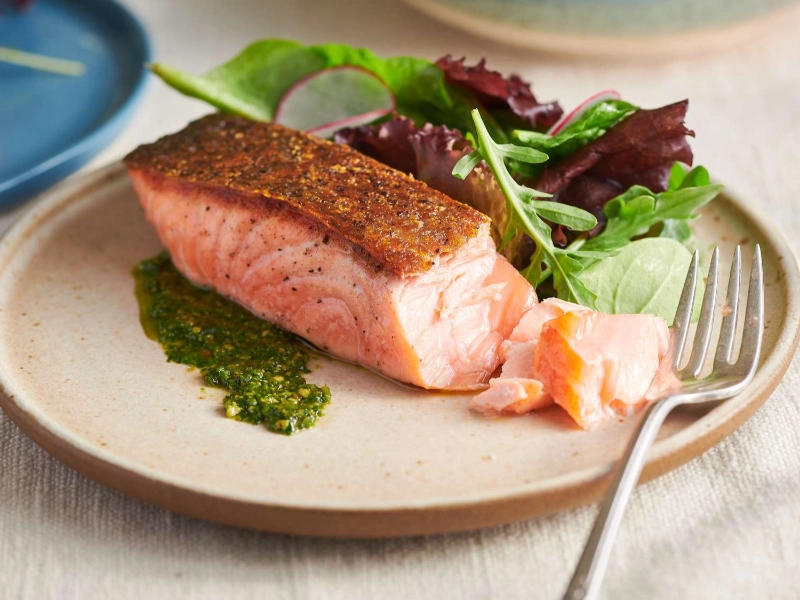
2. Dark green vegetables
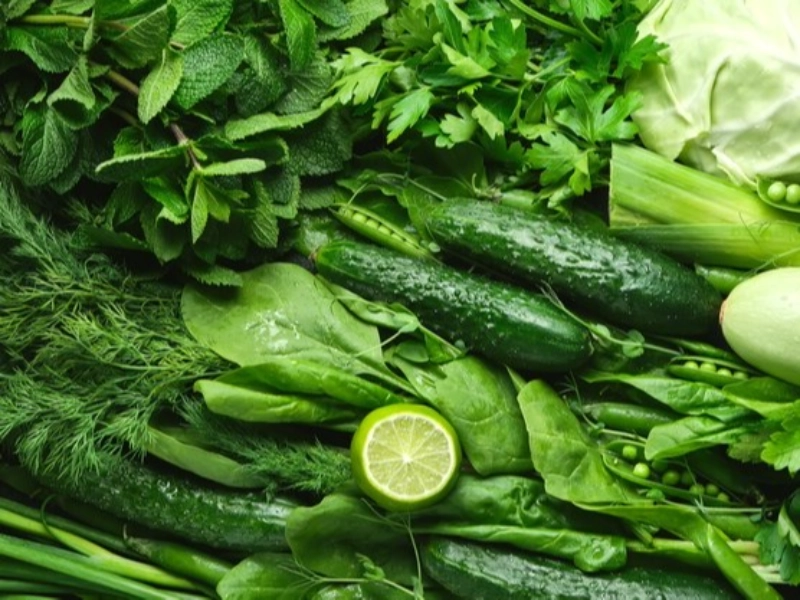 While genetics influence heart health, nutrition also plays a major role. Vitamins A, C, E, K, iron, calcium, potassium and magnesium are all found in leafy greens such as mustard greens, kale, spinach and arugula. They also contain folate, a B vitamin that protects the heart and guards against several congenital diseases. Legumes such as
lentils, chickpeas, black beans and chili beans are also great foods for heart health. They are rich in antioxidants, fiber, folate and magnesium, all of which lower blood pressure. Eat them on their own or add them to salads and soups.
While genetics influence heart health, nutrition also plays a major role. Vitamins A, C, E, K, iron, calcium, potassium and magnesium are all found in leafy greens such as mustard greens, kale, spinach and arugula. They also contain folate, a B vitamin that protects the heart and guards against several congenital diseases. Legumes such as
lentils, chickpeas, black beans and chili beans are also great foods for heart health. They are rich in antioxidants, fiber, folate and magnesium, all of which lower blood pressure. Eat them on their own or add them to salads and soups.
3. Oatmeal
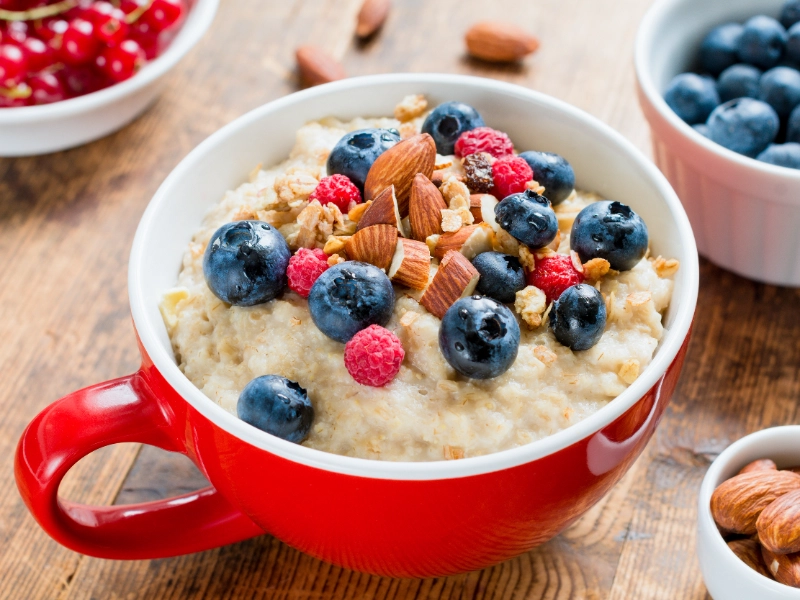 A study found that people who eat oatmeal regularly have a 22% reduced risk of developing heart disease compared to those who don't. Soluble fiber in the diet lowers cholesterol and helps regulate blood pressure. To maximize the benefits, use steel-cut or rolled oats (not instant) cooked in milk or water. When grocery
shopping, try to fill your cart with more heart-healthy options, such as fish, whole grains, nuts, olive oil, berries, and dark green vegetables. These foods are low in energy density, so they satisfy hunger without making you fat. They also contain nutrients that help control blood sugar and prevent high blood pressure.
A study found that people who eat oatmeal regularly have a 22% reduced risk of developing heart disease compared to those who don't. Soluble fiber in the diet lowers cholesterol and helps regulate blood pressure. To maximize the benefits, use steel-cut or rolled oats (not instant) cooked in milk or water. When grocery
shopping, try to fill your cart with more heart-healthy options, such as fish, whole grains, nuts, olive oil, berries, and dark green vegetables. These foods are low in energy density, so they satisfy hunger without making you fat. They also contain nutrients that help control blood sugar and prevent high blood pressure.
4. Berries
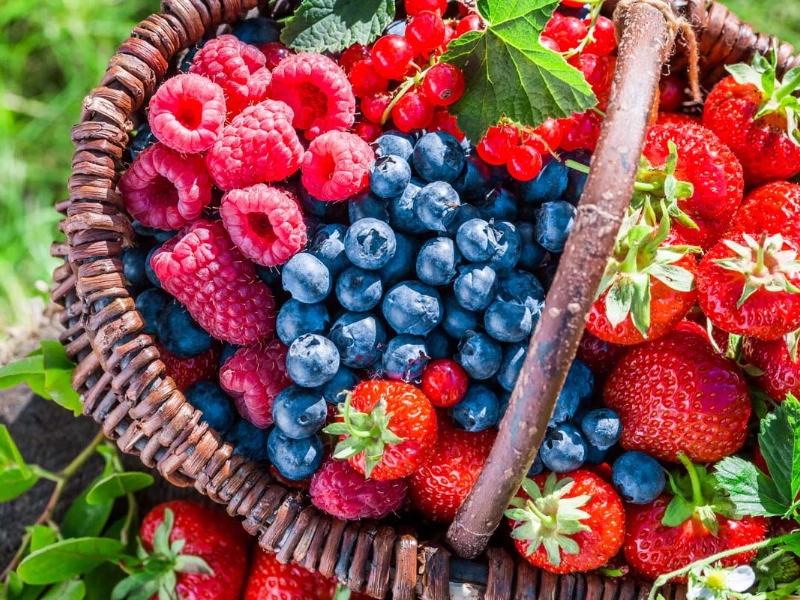 Phytochemicals in berries prevent heart disease. Studies have shown that consuming excess berries, especially strawberries and blueberries, is associated with lower blood pressure, lower blood sugar levels, and a lower risk of cardiovascular disease.
Berries are a great addition to salads, yogurt, oatmeal, smoothies, and desserts. They make a delicious snack on their own!
Blackberries are another great berry option. According to Healthline, they have been shown to reduce oxidative stress and inflammation in people with metabolic syndrome and heart disease. Soluble fiber, another type of fiber found in blackberries, helps the body remove excess cholesterol from the blood.
Phytochemicals in berries prevent heart disease. Studies have shown that consuming excess berries, especially strawberries and blueberries, is associated with lower blood pressure, lower blood sugar levels, and a lower risk of cardiovascular disease.
Berries are a great addition to salads, yogurt, oatmeal, smoothies, and desserts. They make a delicious snack on their own!
Blackberries are another great berry option. According to Healthline, they have been shown to reduce oxidative stress and inflammation in people with metabolic syndrome and heart disease. Soluble fiber, another type of fiber found in blackberries, helps the body remove excess cholesterol from the blood.
5. Raisins
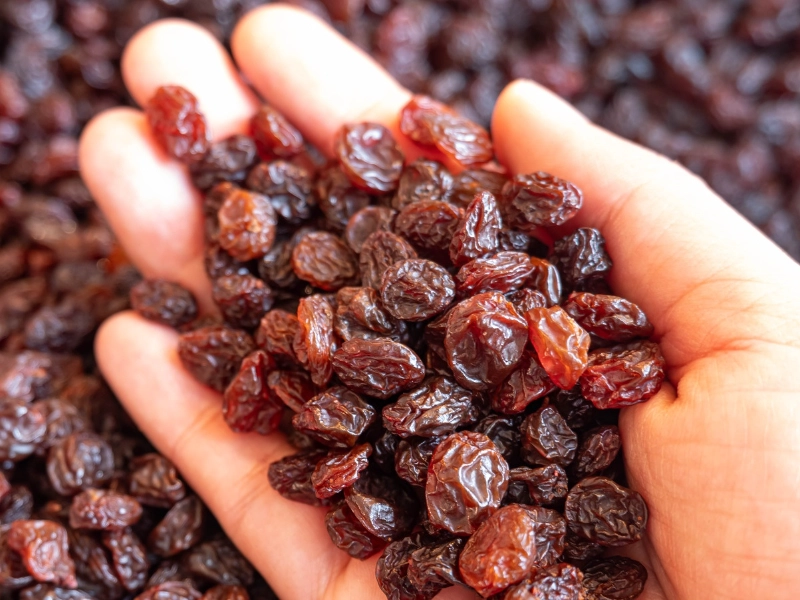 Raisins are rich in antioxidant-rich phenolic chemicals and fiber. Based on a study conducted at Richmond University Medical Center in Staten Island, New York, these properties may help lower the risk of chronic diseases such as diabetes and cardiovascular disease. Eating raisins appears to benefit the
gut microbiome, which plays an important role in a diet that promotes heart health and lowers the glycemic index.
In addition, regular raisin consumption can lower total and LDL-c cholesterol levels, thus lowering risk factors for people with mildly elevated blood pressure (prehypertension). Additionally, raisins have antibacterial properties that help maintain pH balance in the mouth, inhibit the growth of plaque-forming bacteria, and prevent tooth decay.
Raisins are rich in antioxidant-rich phenolic chemicals and fiber. Based on a study conducted at Richmond University Medical Center in Staten Island, New York, these properties may help lower the risk of chronic diseases such as diabetes and cardiovascular disease. Eating raisins appears to benefit the
gut microbiome, which plays an important role in a diet that promotes heart health and lowers the glycemic index.
In addition, regular raisin consumption can lower total and LDL-c cholesterol levels, thus lowering risk factors for people with mildly elevated blood pressure (prehypertension). Additionally, raisins have antibacterial properties that help maintain pH balance in the mouth, inhibit the growth of plaque-forming bacteria, and prevent tooth decay.
6. Broccoli
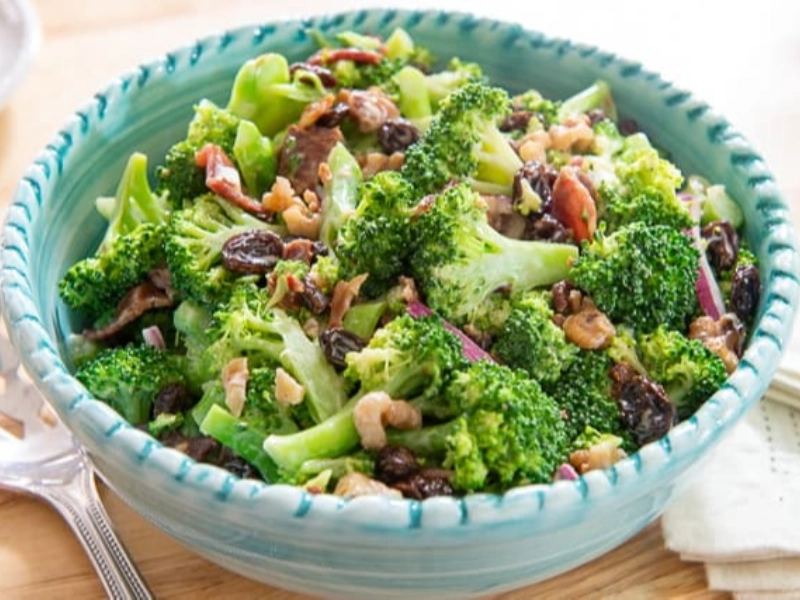 Broccoli is probably at the top of the list of most nutrient-rich foods for nutritionists, physicians and neurological disorders. It is rich in calcium, iron, cruciferous vegetables, vitamin C, antioxidants and phytochemicals that lower blood pressure and cholesterol. With only
31 calories per cup, broccoli is also a low-calorie meal that can help with weight management. It is also packed with dietary fiber. This vegetable belongs to the cruciferous family, which also includes heart-healthy vegetables such as cabbage and bok choy. Additionally, it contains carotenoids, isothiocyanates, glucosinolates, indoles, vitamins K and E, and is a good source of folate.
Broccoli is probably at the top of the list of most nutrient-rich foods for nutritionists, physicians and neurological disorders. It is rich in calcium, iron, cruciferous vegetables, vitamin C, antioxidants and phytochemicals that lower blood pressure and cholesterol. With only
31 calories per cup, broccoli is also a low-calorie meal that can help with weight management. It is also packed with dietary fiber. This vegetable belongs to the cruciferous family, which also includes heart-healthy vegetables such as cabbage and bok choy. Additionally, it contains carotenoids, isothiocyanates, glucosinolates, indoles, vitamins K and E, and is a good source of folate.







